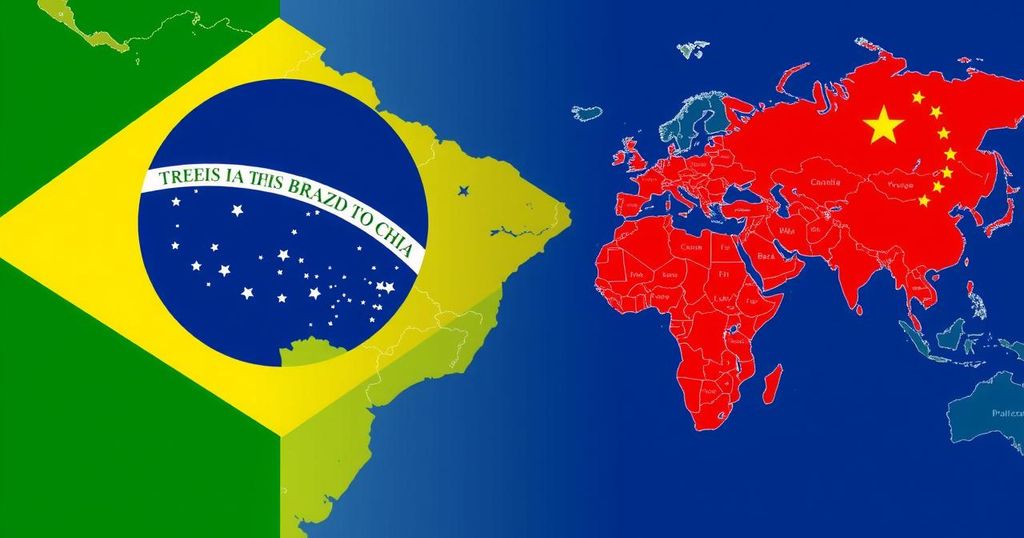Brazil’s Strategic Stance on China’s Belt and Road Initiative
Brazil’s special adviser, Celso Amorim, announced that the country will not be formally joining China’s Belt and Road Initiative. Instead, Brazil intends to explore synergies between its own infrastructure projects and investments associated with the BRI. This decision reflects inner governmental divisions but is not expected to damage Brazil’s essential trade relations with China.
In a recent statement made in Beijing, Celso Amorim, who serves as the special presidential advisor for international affairs in Brazil, articulated the country’s current stance regarding China’s Belt and Road Initiative (BRI). Brazil has opted not to formally join this expansive infrastructure scheme, which has been pivotal in fostering global connectivity since its inception a decade ago. However, Amorim emphasized that Brazil remains open to leveraging elements of the BRI framework to establish potential synergies with its own infrastructure projects and the associated investment funds. This nuanced position underscores internal debates within the Brazilian government regarding the initiative, yet analysts believe it will not undermine Brazil’s relations with China, which is its largest trading partner. Prior to this announcement, there were expectations that Brazil might align itself more closely with the BRI during an upcoming visit by Chinese President Xi Jinping to Brazil.
The Belt and Road Initiative, launched by China in 2013, is a strategic development framework that aims to enhance global trade and economic collaboration through a series of infrastructure projects across numerous countries. Brazil has been an important player in South America, with significant infrastructure needs and opportunities for foreign investment. The decision not to fully join the BRI illustrates Brazil’s cautious diplomatic approach, weighing the benefits of cooperation against the implications of deeper integration into a Chinese-led framework. The Brazilian government’s deliberation reflects its broader strategy to maintain beneficial trade relations while navigating complex geopolitical landscapes.
In summary, Brazil’s decision to forgo formal membership in China’s Belt and Road Initiative while remaining amenable to collaboration within its framework highlights a balancing act in diplomatic relations. The Brazilian administration seeks to maximize infrastructure development without overly compromising its autonomy in strategic international partnerships. This approach will likely continue to shape Brazil’s economic policies in relation to China moving forward.
Original Source: www.scmp.com





Post Comment